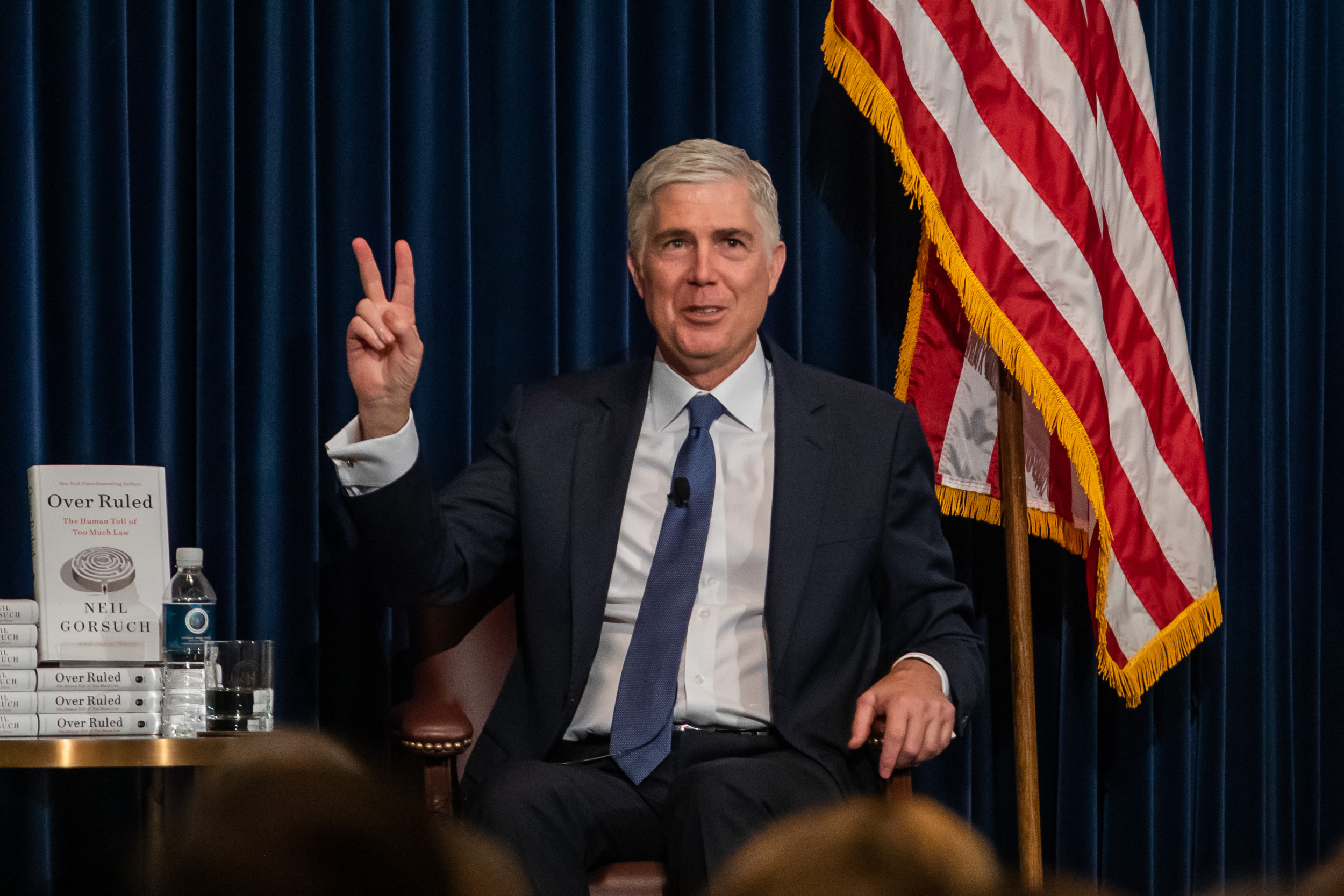The recent leak of Chief Justice John Roberts’ memos has reignited discussions around the issue of confidentiality in the Supreme Court. Justice Neil Gorsuch, speaking at the National Constitution Center on Tuesday, emphasized how crucial trust is within institutions, a value he argued was held dear even by the Founding Fathers.
Gorsuch referenced the secrecy upheld during the Constitutional Convention, noting, “The framers promised not to leak any of their deliberations.” This commitment to discretion played a key role in forging the compromises that shaped the nation’s future. “What was discussed in that room stayed in that room,” he remarked, reflecting on how essential this trust was for reaching agreements.

Apu Gomes/Getty Images
Gorsuch’s concerns come amid heightened scrutiny of the Supreme Court following the leaked memo, which indicated Roberts’ plans to address Donald Trump’s claims of presidential immunity. Reports note that Roberts seemed inclined to support Trump’s position in a potential case.
The New York Times highlighted that Roberts wrote to his colleagues in February, suggesting a differing view on separation of powers, particularly regarding a decision by the D.C. Circuit that permitted the case to move forward.
Roberts’ proactive role in these cases has surprised some justices across the ideological spectrum, particularly given his appointment of three conservative justices during Trump’s presidency.
In a significant ruling, the court determined that states cannot independently disqualify federal candidates. Roberts played a vital role in reaching this consensus, advocating for a unified, unsigned opinion on the matter.
Interestingly, there was a moment where Roberts requested Justice Samuel Alito to draft the majority opinion for Fischer v. United States but later decided to take on that task himself—a rare occurrence. The resulting decision from June clarified the legal standards needed to prosecute federal charges related to tampering with official documents, affecting many involved in the January 6 Capitol riot.
During his talk, Gorsuch drew parallels between the ideological challenges of today and those faced by the nation’s founders, asserting that the principles of trust and confidentiality facilitated the resolution of conflicts back then.
“We live in a pretty tough time,” he stated. “You think that’s unique to our time, but it really isn’t. They trusted one another, and that helped them reach an agreement.”
The recent leaks have raised alarms about the Supreme Court’s inner workings, especially given the earlier breach involving Justice Samuel Alito’s draft opinion that led to the overturning of Roe v. Wade.
Beyond advocating for confidentiality, Gorsuch also highlighted the need for civility in public discussions. He quoted his wife’s grandmother, saying, “You’re going to have a lot of regrets in life, but the one thing you’ll never regret is being kind.”
